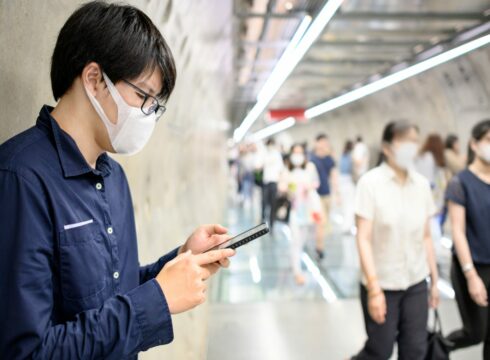SUMMARY
Amazon warned sellers it would delete listings making unapproved medical claims
The WHO held discussions with tech companies to curb the spread of misinformation about coronavirus
WHO thinks any steps taken now could reveal a long-term sustainable model for response to future diseases
Inc42 Daily Brief
Stay Ahead With Daily News & Analysis on India’s Tech & Startup Economy
Ecommerce giant Amazon has warned third-party sellers and merchants that the platform will boycott products that claim to cure the deadly coronavirus disease (COVID-19) and delist such products or sellers from the platform.
The coronavirus has spread to over two dozen countries and the death of more than 2,000 in mainland China. The fear among people has led to the spread of false information. Some sellers are cashing in on the same.
The World Health Organization (WHO) has been asking tech companies to take tougher action to battle fake news on the coronavirus. The WHO called the spread of fake news on the outbreak an “infodemic” that was spreading faster than the virus.
Amazon, in one case, warned a seller it would delete their listing for surgical face masks for making “unapproved medical marketing claims,” says a CNBC report.
The WHO had reportedly held discussions with Amazon on measures to fight the spread of misinformation about the coronavirus on their platforms. However, a CNBC search found several products that appeared to flout these rules, including disinfectant sprays and cleaners that claimed to “kill” the coronavirus.
Along with ecommerce platforms, social media firms have also been asked by WHO to curb false information. Facebook, Twitter, Youtube and TikTok have reportedly agreed to redirect users that search for coronavirus on their platforms to the WHO or local health organisations.
Additionally, Google’s search engines will only show news and safety tips. Facebook has said it will use its existing network of third-party fact-checkers to debunk false claims.
“I think what would be very exciting is to see this emergency changed into a long-term sustainable model, where we can have responsible content on these platforms,” said Andrew Pattison, digital business solutions manager, for the WHO.
The Indian government has also been insisting on censorship of social media. It had proposed to make them responsible for all non-user generated content, including sponsored content and promoted posts published on their platforms.
The new clause, in the upcoming revised information technology (IT) intermediary guidelines, is similar to the practices in the US and Europe. Once the amendments are notified, social media platforms such as Twitter, TikTok, YouTube, Instagram and Facebook will have to appropriately tag and identify all sponsored content published on their platforms. The onus of non-user generated content will now fall on social media platforms.
The IT ministry has proposed that significant social media intermediaries should maintain a database of active mobile numbers of all their users. The ministry has proposed that the new rule should apply to all ‘significant’ social media companies.
The government is expected to soon announce the revised guidelines after the ministry of electronics and information technology (MeitY) gets the law ministry’s views on the validity of the provisions in the draft document.
Note: We at Inc42 take our ethics very seriously. More information about it can be found here.


